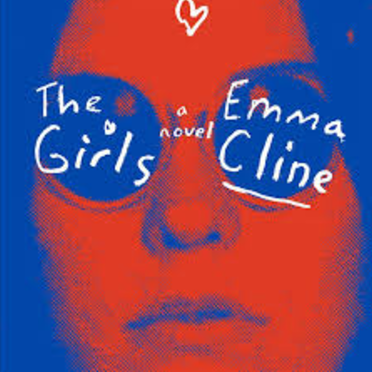Emma Cline’s debut novel, “The Girls,” bobs between the present and 1969, and spotlights the way in which Evie Boyd’s life is anchored by the events of one summer. Cline crafts a character familiar to most girls: a 14-year-old eager to find her place. Years after conserving the intimate details of her experiences in a Manson-like cult, Evie revisits these capsules of memory as though she’s sifting through a treasured diary.
With Northern California as its backdrop, “The Girls” hums with a sense of nostalgia, unraveling over the stretch of summer in the ’60s. The thrilling world of Russell Hadrick and his cult dismantles the innocence that cocooned Evie’s once-idle days, as she is enthralled by her new placement in his group. She leaves behind a summer braided in adolescent projects with her best friend Connie and empty days spent with her mother, slinking into her new position at the side of Suzanne, a member of the cult whose presence entrances her.
Evie embraces their lifestyle of blissful submission, eagerly clutching onto the attention of Russell and Suzanne, even when it compromises her own safety. As the summer progresses, however, the gleam of this world begins to dim as the dangers of the cult sharply unspool, awakening Evie to the reality of a group that she had previously seen as infallible. The dreamlike months of the summer soon escape her, taking with them her only sense of belonging.
The threads of the present knit an image of Evie carrying out a banal life, stalked by the presence of her past. Although the story is recounted in her middle-aged voice, she clearly harbors the same loneliness she possessed as a 14 year-old. Evie is reluctant to erase the jarring history that she’s bound to, clinging to her memories as a way of preserving the feeling of being truly seen.
Cline’s writing buzzes with life, unfurling on the pages in vivid, resonant images. Her words are both clear and smart, supplying snapshots imbued with meaning that craft the tapestry of memories in Evie’s head. Images inhabit each page in stunning candor and scrutinizing specificity: “The sweet drone of honeysuckle thickening the August air…the tang of soy, smoke in someone’s hair, the grassy hills turning blond in June…”
Although reminiscent of the Manson stories, “The Girls” delves more into the feelings entrenched in youth than the events of the cult. In doing so, Cline conjures a story with a plot that may not be universally relatable but that emanates familiarity in the achy eagerness of adolescence that it offers. Cline deals with the newness of sex, the allure of drugs, the intricacies of one’s home life, and the struggle of being wanted.
The dynamic quality of characters contributes to the book’s success, as they frame Evie’s drive to grow up and direct the polarization of worlds she exists in. Her life at home is marked by her recently divorced mother, who floats from boyfriend to boyfriend, detached from Evie. Her father exists as a distant figure, awkward and unfamiliar to her, and her childhood friend Connie is primed with the innocence of Evie’s youth. With her entrance into the cult comes the emergence of characters that whirl with seductive novelty. For Evie, Suzanne lies at the center, an older girl that represents mystery and freedom. Suzanne holds, according to Evie’s narration, “a suggestion of otherworldliness [hovering] around her.” Evie’s infatuation with Suzanne fuels her ardent participation in the cult, and their relationship untangles to forge the novel’s enticing cadence.
Cline’s interest in the cult subject matter is rooted in her childhood, as she grew up in Sonoma in the ’70s, when The Chosen Family commune operated on an expansive ranch outside San Francisco. There, the hippie group partied to eclectic rock as LSD tablets sunk down their throats and reality turned to a quiet hiss in the background. The disillusionment that occupied the commune ultimately led to its downfall, marked by destruction and death. Even so, the group’s story remains fixed in Cline’s mind, it is what seizes her imagination.
“The Girls” isn’t the first time she’s explored the theme of girlhood, her 2013 piece “Marion” follows another young female protagonist. In a recent interview with The Paris Review, Cline muses over her pull toward this subject matter. “I’m interested in this moment on the cusp of adulthood—when we encounter how the world treats women and girls—and what it means to be a girl in the world. That age somehow has both a kind of innocence and a burgeoning awareness.”
Cline’s redolent portrayal of adolescence is also set to appear on the silver screen, and producer Scott Rudin, whose past work includes “Frances Ha,” “Doubt,” and “Moonrise Kingdom,” has already bought the rights to the book. In the meantime, though, revel in the nostalgic youth stunningly painted by Cline and her fledgling narrator.
-
挖宝网
